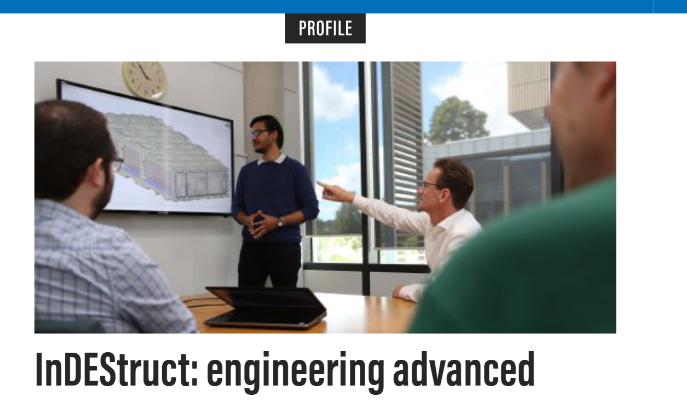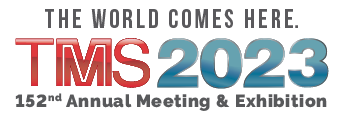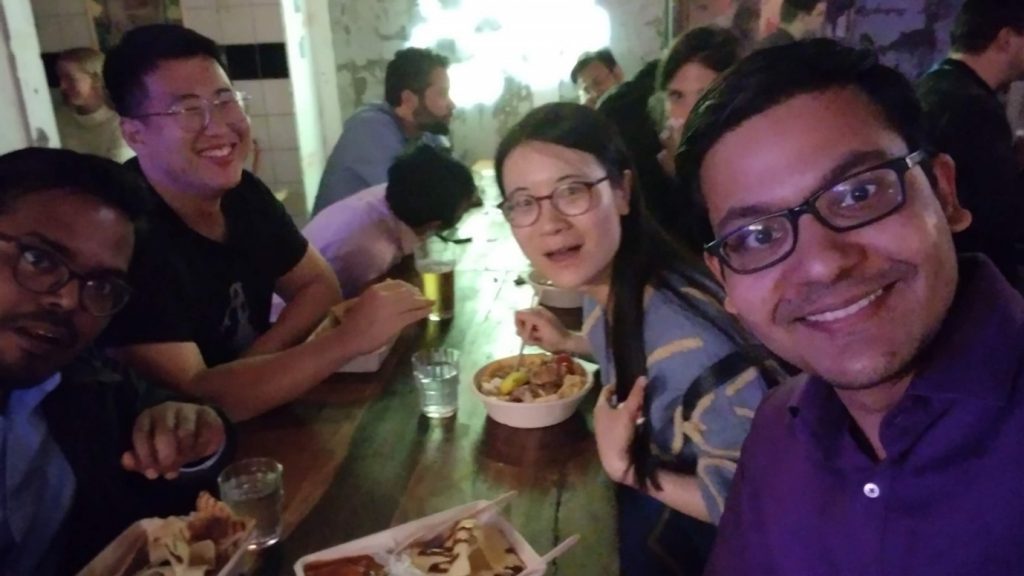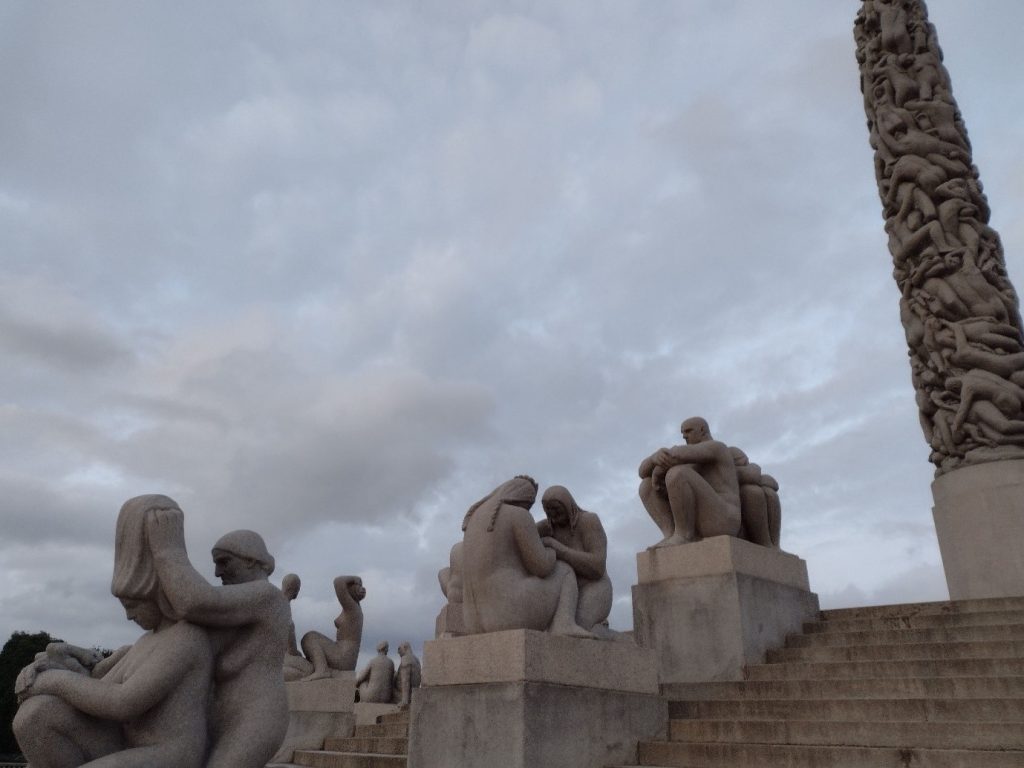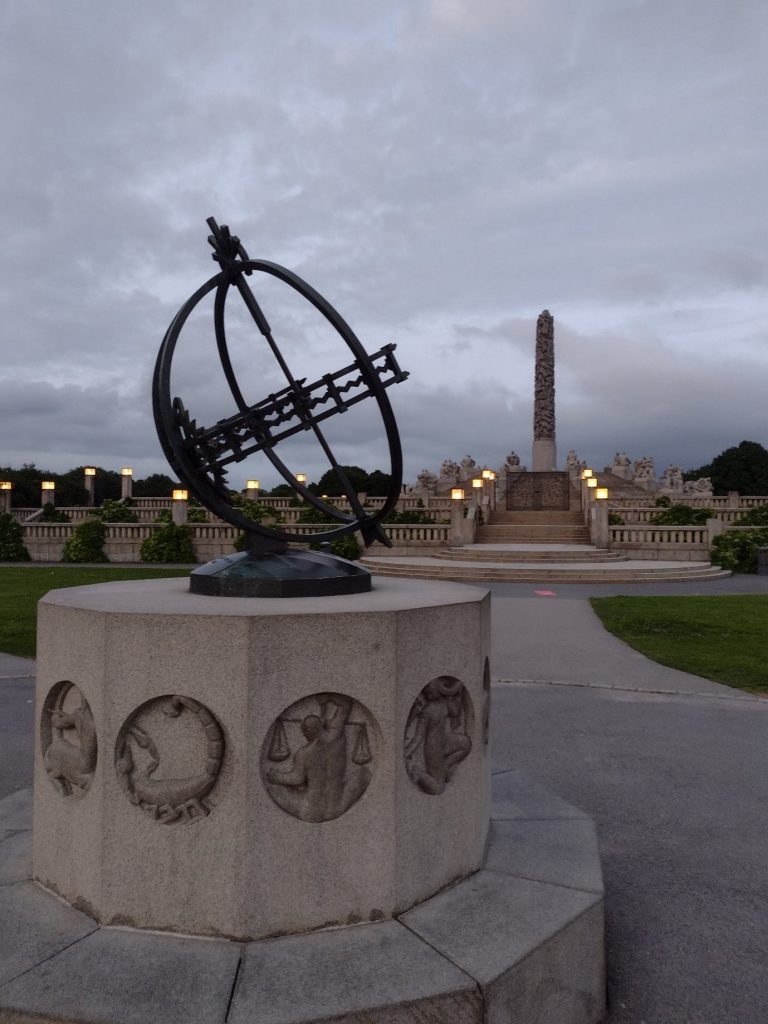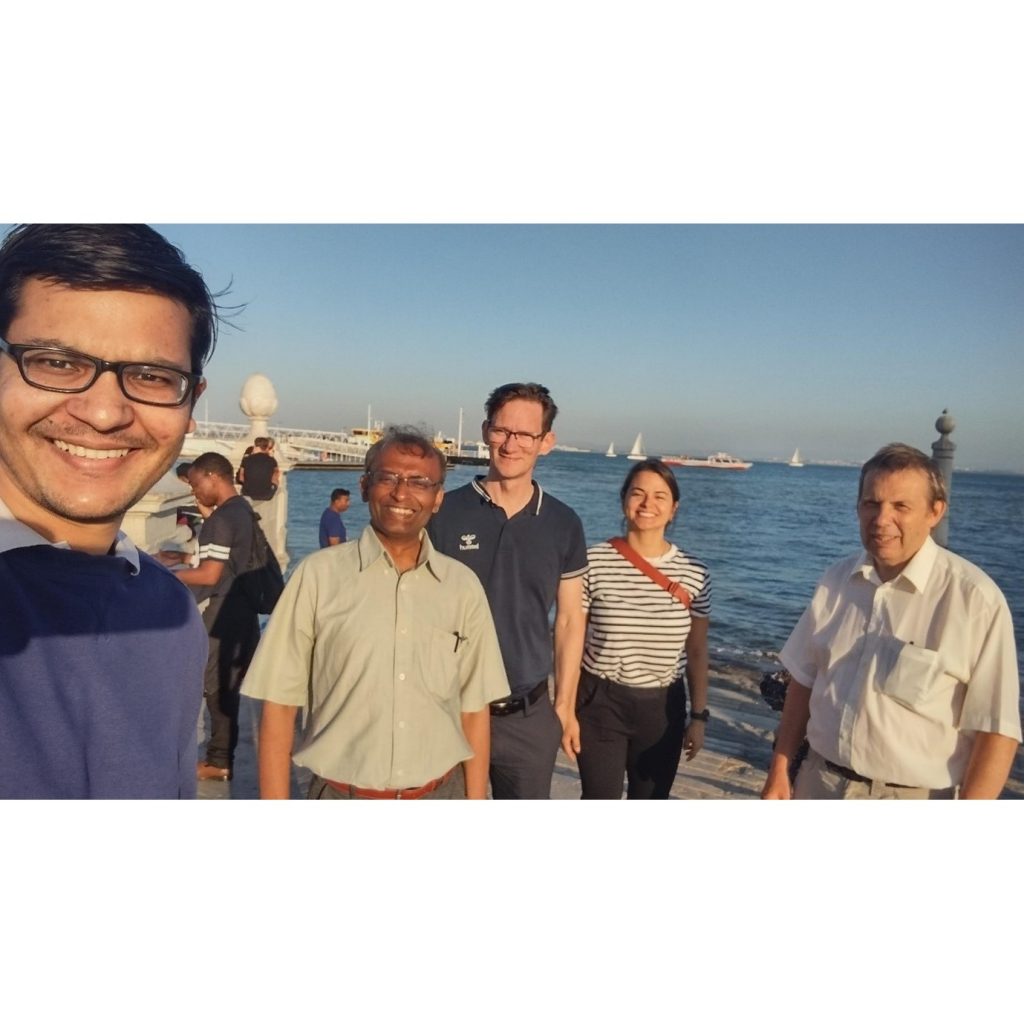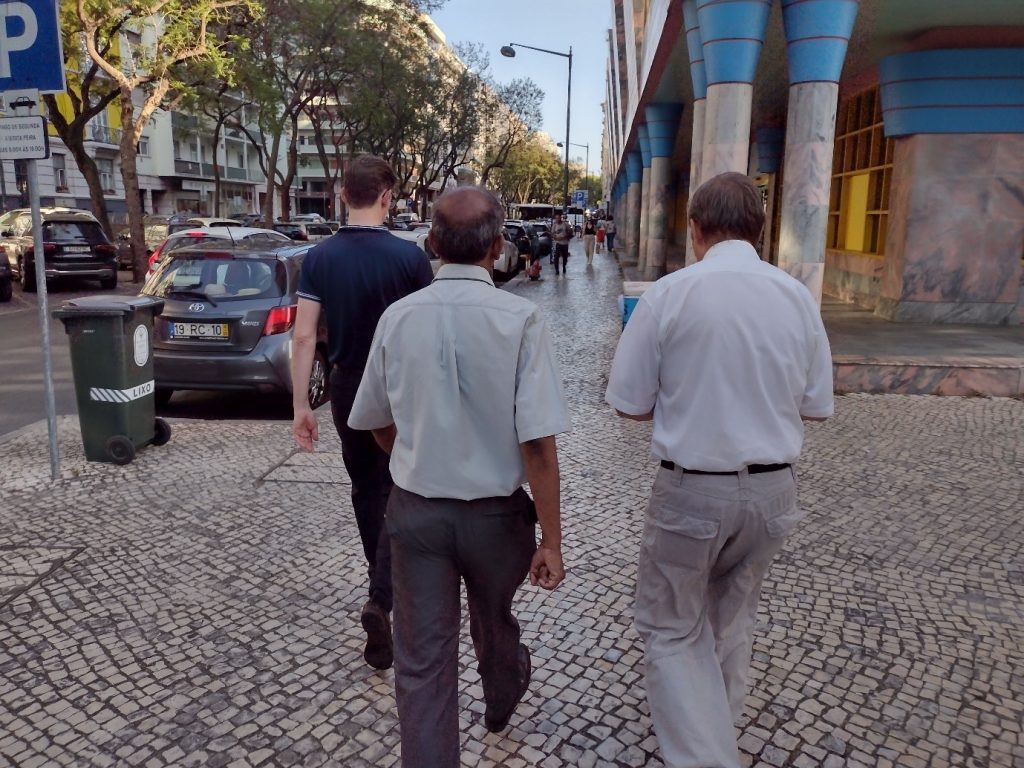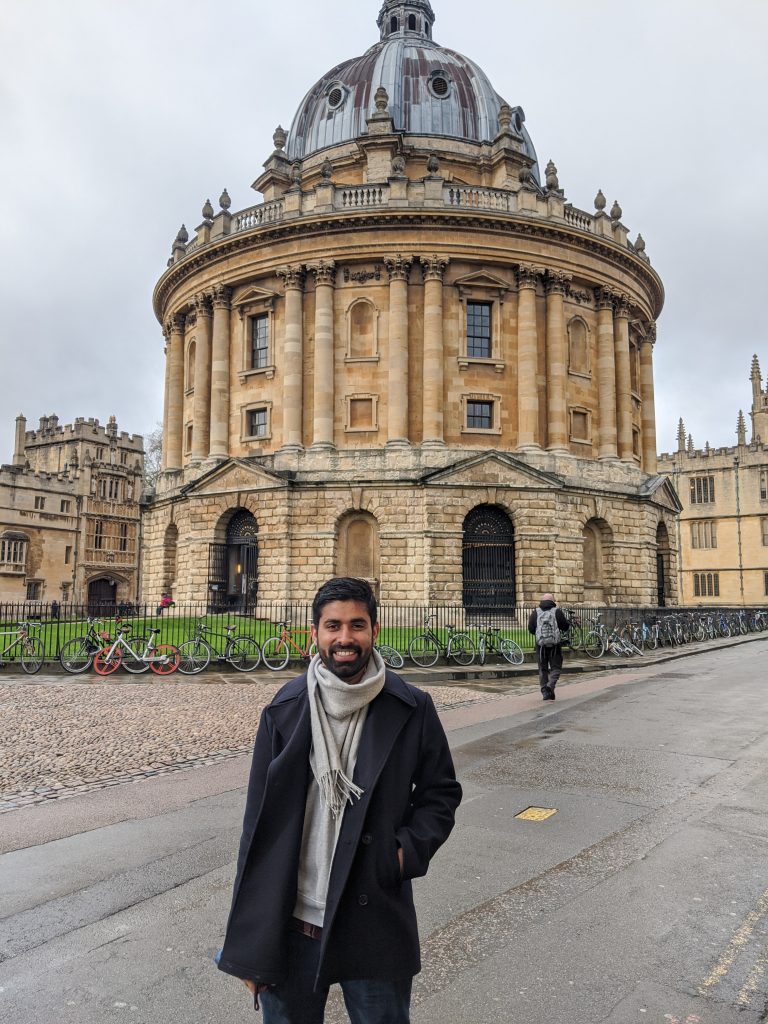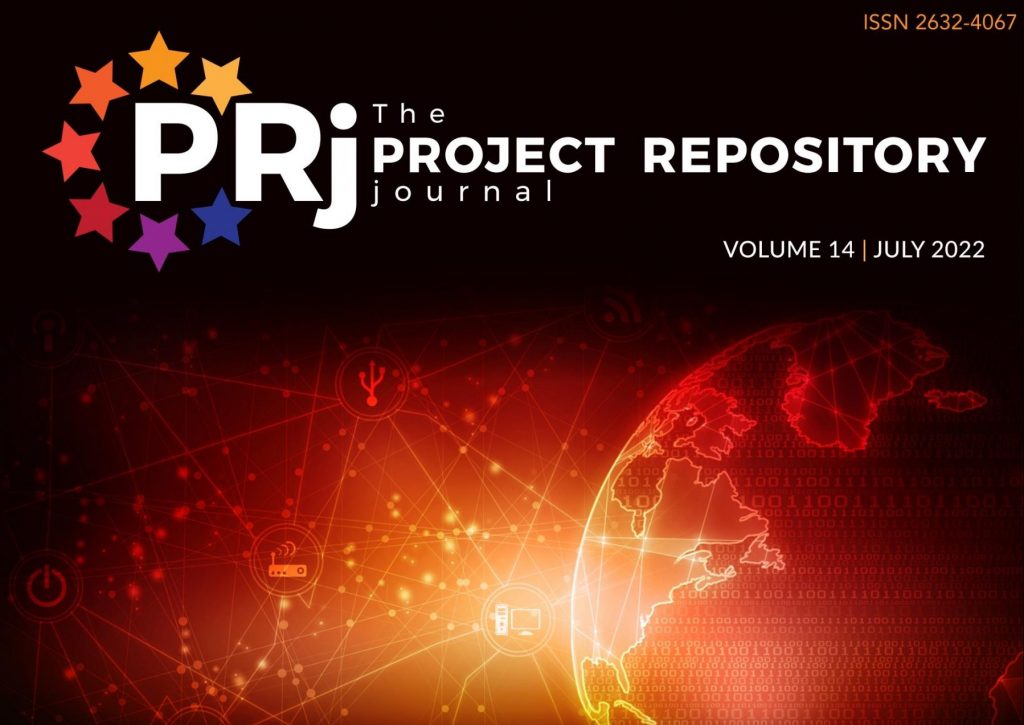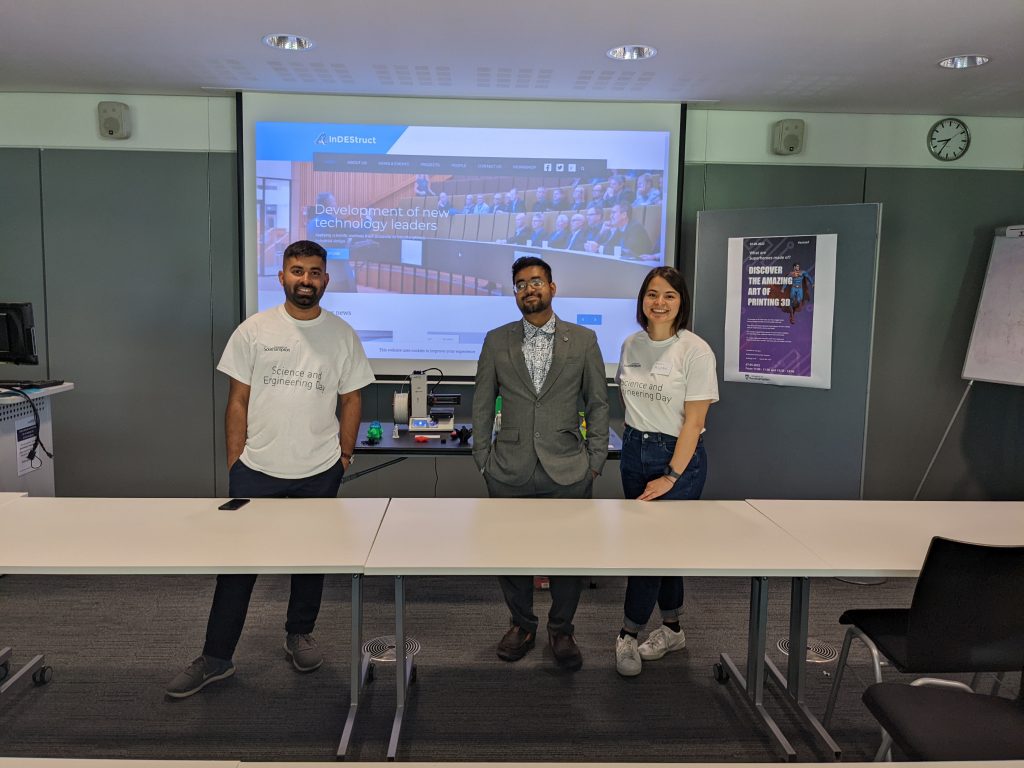ASMO-UK conferences (12th) and the first in the new series ASMO-Europe, is a conference on Engineering Design and Optimization, held in Leeds, UK on 18th and 19th of July 2022, with ESR1 in attendance.
The conference was host to researchers specializing on topics of optimization, such as, combinatorial optimization, inverse problems, meta modelling, sensitivity analysis, topology optimization, and other industrial experts on applications of optimzation. The participants hailed from various research institutes and companies such as Fraunhoffer, Cenaero, Volkswagen, Airbus and Rolls-Royce to name a few.
Among them, ESR1 also got a chance to present his work on “A method to reduce experimental costs using multi-fidelity Gaussian processes for corrugated tubes”.
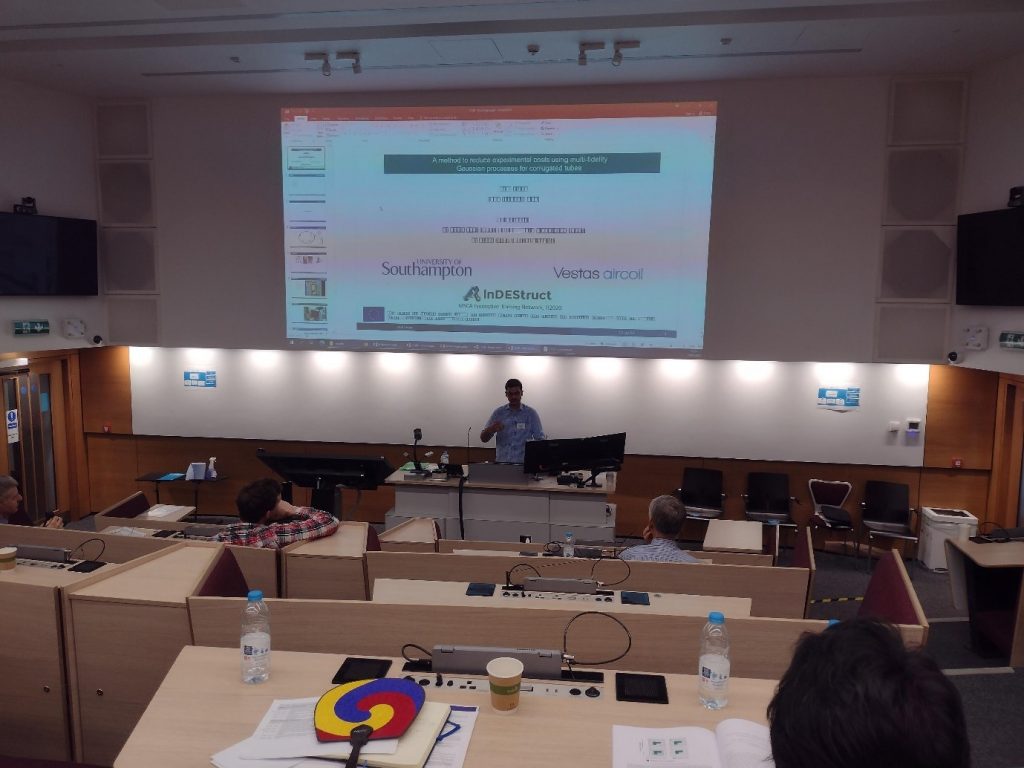
Presentation of ESR1 in ASMO 2022, Leeds, UK.
Engineering practices rely heavily on experimentations, which means there is also significant budgeting of resources required to conduct them successfully. Furthermore, experimenting of just one equipment or a single configuration of a component or a system is almost never enough, as more data needs to be acquired before some important business (or design/strategic) decision can be taken. This in itself raises another set of questions such as, which configuration(s) should then be tested and/or how many data points would suffice for each of those configuration(s), keeping in mind, the strict budget of resources at hand. This, consequently, adds up to the the costs involved with a signigficant risk of overrun which is why, it is almost impossible to conduct experimentation with such approaches, and new approaches are necessary.
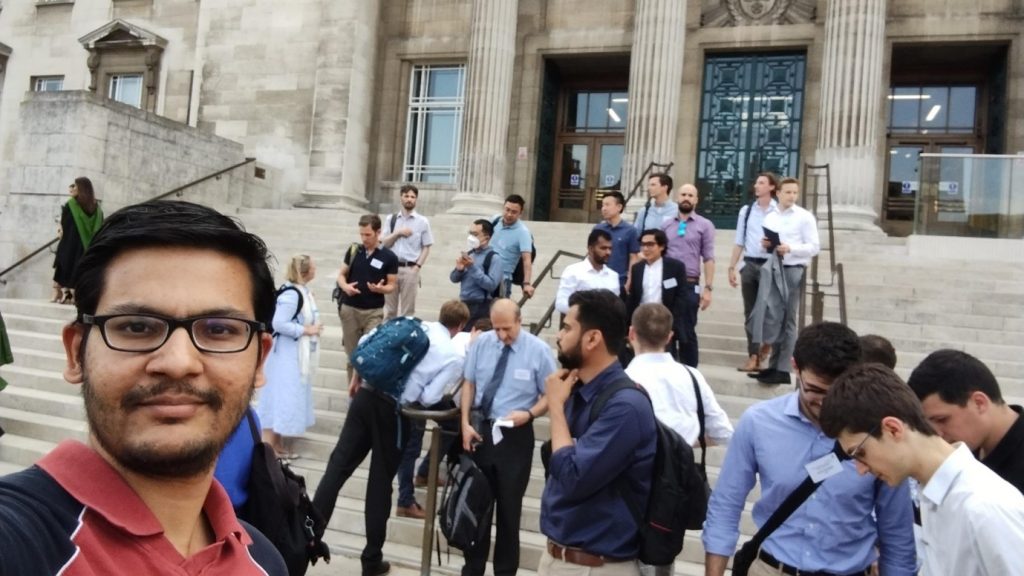
After group photo of ASMO 2022 participants, at the key monument of University of Leeds.
This is where ESR1’s work comes into the picture, which aims to find answers to this question of, can experimental effort be reduced? Essentially, his work addresses this question by combining data by conducting a larger number of simulations, which are relatively cheaper to conduct, along with very few experimentations, which are expensive. The data gathered and utilized in this way provides predictive capabilities for quantities of interests within an acceptable range of error.
As ESR1’s project was based on a heat exchanger application, it also proved to be a welcoming change amongst most of the other applications that were discussed during thier presentation. They were either airfoil, or topology optimization applications. So a question such as, “Can I apply this method to my application?” was very common, as observed by ESR1.
In general the conference was a huge success, as most of the participants, apart from the two-day long presentations, also engaged in discussions on contemporary challenges on optimization faced by the industry as well as academia.
The event also proved a great place for networking as most of the participants were students and experts in the field of optimization, which is also the topic of research for ESR1.
Truly a learning experience for ESR1!


